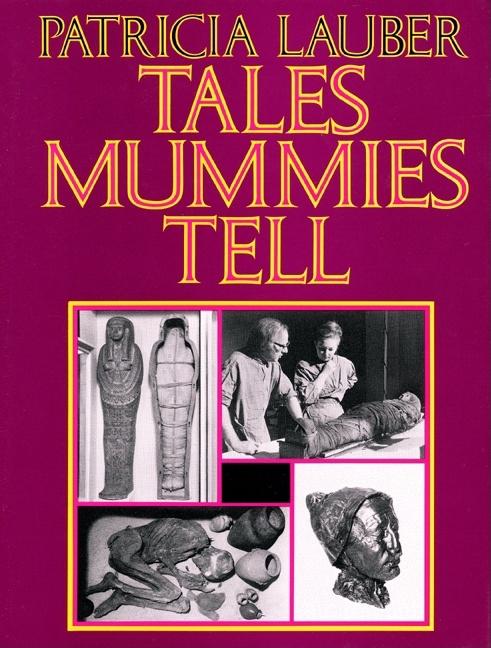Book Descriptions
for Tales Mummies Tell by Patricia Lauber
From Cooperative Children's Book Center (CCBC)
From the Publisher
Sand in their bread caused serious tooth problems for the ancient Egyptians, peasants and pharaohs alike.Skull surgery was commonly performed by the Inca Indians of Peru. A thick soup made of grain and seeds was a typical winter meal in Denmark during the Iron Age. How can we be so sure of what ancient life was like? Largely because, in recent years, mummies have begun to "talk" to scientists who study them for clues to the distant past. X-rays reveal mumm ies that have never been unwrapped. The shape of the face appears, and resemblances may establish family relationships. In the bones of a mummy, medical scientists can read age at death, signs of disease, fractures that healed. Teeth yield information about diet and health. Sometimes a mummy offers a surprise: an Egyptian mummy is found to have two skulls; another, long thought to be the child of a high priestess, turns out to be a baboon. Sometimes a mummy tells a moving story: examination of a girl's mummy shows she lived her short life in considerable pain; a man's mummy, with broken bones and slit throat, proves he met a violent death.Generously illustrated with photographs ranging from the gruesome to the starkly beautiful, Tales Mummies Tell is a remarkable account of mummies -- intriguing talebearers from the pastand of the ways scientists unlock their secrets.


